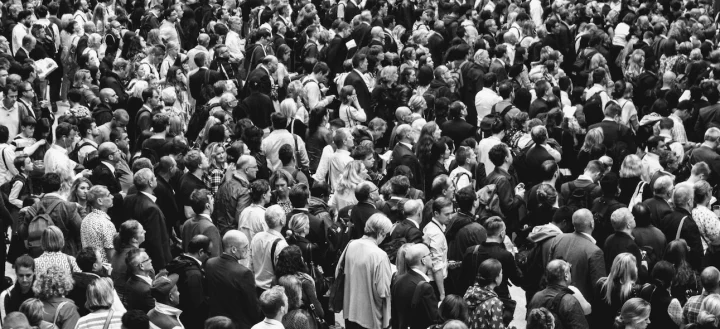Our work in democracy explores the future challenges and opportunities faced by democratic politics.

We aim to understand the prospects for democracy in broad historical and international perspective, getting beyond the immediate crisis to identify different possible trajectories for democracy around the world. This means distinguishing what is essential to democracy, what is contingent and what can be changed. That requires taking the long view, drawing on the big picture and expanding our imaginative horizons. To do this we connect with work across Cambridge in a variety of fields, from computer science and environmental science to history and philosophy.
Our work moves away from a fixation on the here and now, and beyond the who and what of democratic politics – who is going to get elected, what are they going to do? – to look at the how. How do democratic decisions get made and how can they be made differently? How can the consent of losers and outsiders be achieved? How can new social divisions be bridged? How can the use of technology be brought under democratic control? And if we can’t do these things, how will democracy not merely survive but flourish in the future?
Our work focuses on four strands of research:
The Spatial Divide
This project explores spatial inequality, and its effects upon political polarisation, economic frustration, and the rise of populism. Why have some regions of the global economy become “left behind”, and what measures can be taken to bridge the economic divide? And how have differing dynamics, both within and between major world regions, produced widely varying trajectories in terms of democratic consolidation? This project explores subnational analyses of survey data in order to understand the regional basis for citizen frustration with their political institutions, and how these trends are evolving over time.
- A World Divided: Russia, China and the West
- Decentralization, historical state capacity and public goods provision in Post-Soviet Russia
- Why Strongmen Win In Weak States
- Global Satisfaction With Democracy
- The West Has a Resentment Epidemic
Democracy and the Pandemic
This research offers insight into the ways in which the global coronavirus pandemic has upended established beliefs and attitudes across a wide variety of domains, including public trust in government, support for democracy, and support for populist attitudes and parties. As the dust settles on the global coronavirus pandemic and we are able to look to the future that lies beyond it, what are the changes in political values we can observe thus far?
- The Great Reset: Public Opinion, Populism, and the Pandemic
- America After Trump: From “Clean” to “Dirty” Democracy?
- How Democracies Can Survive Dilemmas Like the Coronavirus
The Generational Divide
This project explores the causes, impact and wider implications of the growing generational divide in democratic politics, which increasingly pits younger voters against older voters. Do its origins lie more in demography, technology or identity? How is this gap to be bridged? The particular focus of this project will be on democratic engagement with children, including a series of workshops in primary schools. How can democracy best take account of the interests of those too young to vote?
- The Great Reset: Public Opinion, Populism, and the Pandemic
- Youth and Satisfaction With Democracy
- Refurbishing Democracy: More Direct, More Deliberative, and Younger
- Youth and the Populist Wave
Democracy and Climate Change
In conjunction with the work being done by Cambridge Zero and the Centre for Science and Policy, we explore how different forms of democracy can engage with the politics of climate change. The particular focus of this project is on the relationship between technical problem-solving (including geo-engineering) and deliberative democracy. Can expert science and democratic engagement mix?
Technology and Democracy
Building on work done in CRASSH and in the Centre for the Future of Intelligence, this project explores the impact of the digital revolution on democratic politics around the world, from the changing character of elections to the new power of big technology companies. It also looks at how non-democratic regimes, particularly China, deal with similar challenges and what this might mean for the relationship between technology and democracy in the future.








